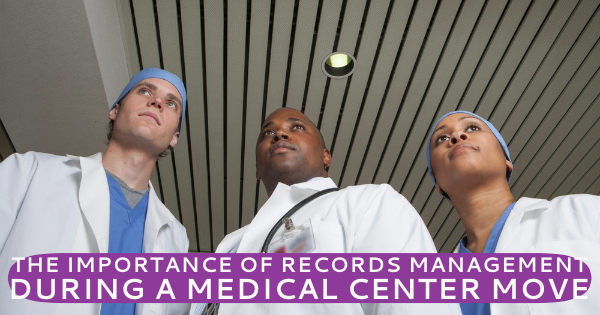If you’re relocating your medical center, you need to take precautions to ensure that sensitive data remains protected. In fact, there are many important laws and regulations regarding medical records management, including the Health Insurance Portability and Accountability Act (HIPAA). Following regulations is crucial whether you’re making a national or a local move, which is defined as less than 50 miles, according to Move.org. Let’s look at how you can stay on the right side of such policies.
The Basics of Managing Medical Records During a Move
Medical records should be securely stored with access granted only to authorized parties. Records should be kept out of sight from unauthorized individuals and secured when they are not in use or under the appropriate supervision. This typically means that they should be under lock and key or a similar arrangement.
These same basic guidelines should be followed when transporting medical records. They can be placed in locked cabinets or crates that ensure that only authorized parties have access. It’s also wise to keep them in vehicles, such as moving vans, that are locked and with restricted access.
The Right Materials
Fortunately, it’s possible to find HIPAA-certified packing crates. These crates will be made from sturdy material, like plastic, and should not be see-through. You can also use security tags to ensure that they are secured and not tampered with.
Essentially, HIPAA requirements for medical records management should be maintained at every step of the move. If you fail to do so, you may find yourself facing serious fines and other liabilities. Beyond ensuring you have the right boxes and equipment, it’s also important to make sure you work with trained and vetted movers with the proper experience.
The Human Factor
The right storage crates, security tags, locks, and moving vehicles, among other equipment and materials, will go a long way in ensuring a safe move. However, it’s also important to make sure that you have the right movers and staff for the job. Companies that specialize in HIPAA moving and medical record management will vet their movers for potential issues, such as a criminal record, and also provide extensive training.
Even when locked or sealed with security tags, crates with medical records should remain under supervision. Never cutting corners is crucial, and should an issue arise, movers should know how to respond to minimize risks. If you’re looking for skilled records management movers, contact Arrow Transfer & Storage today.

